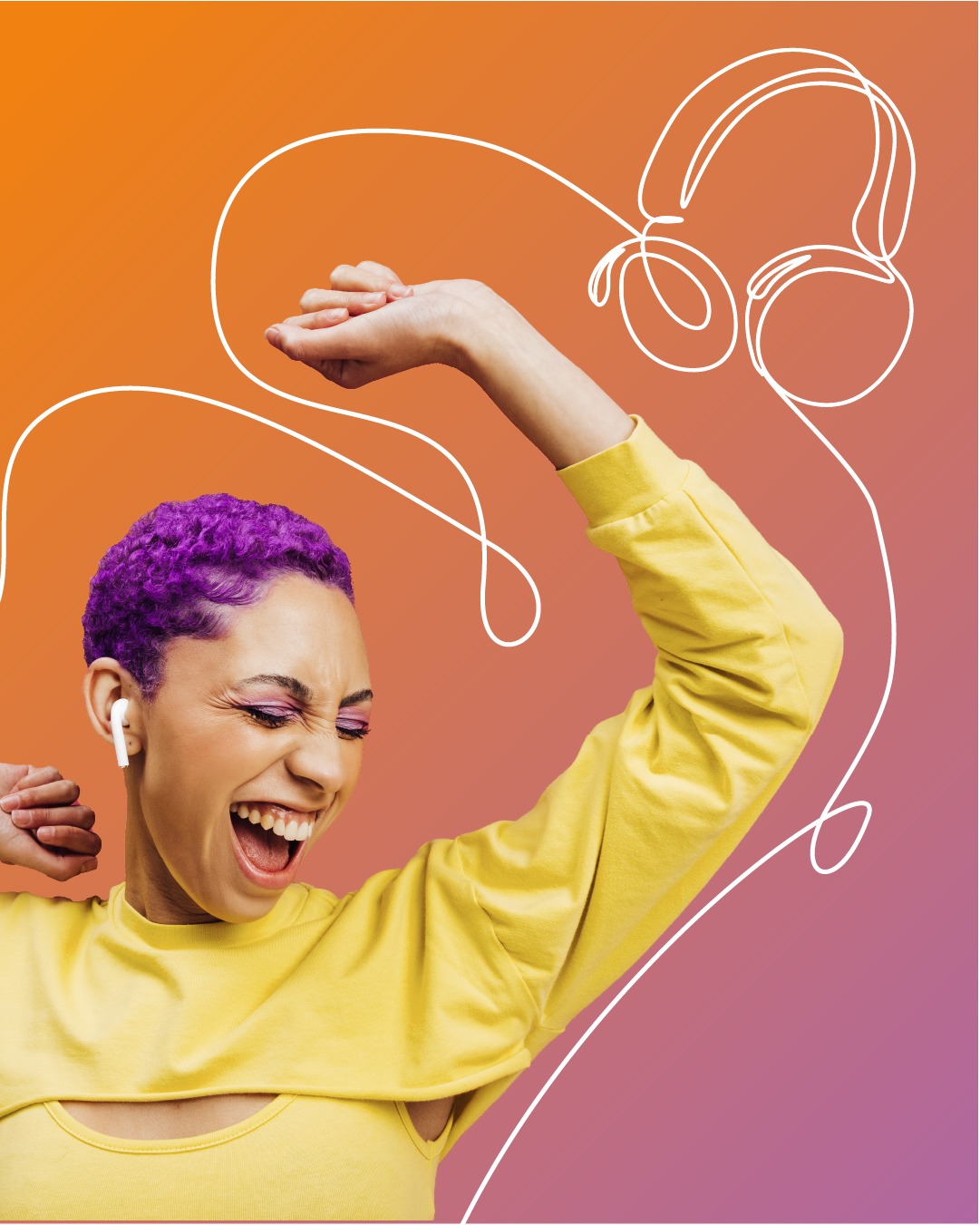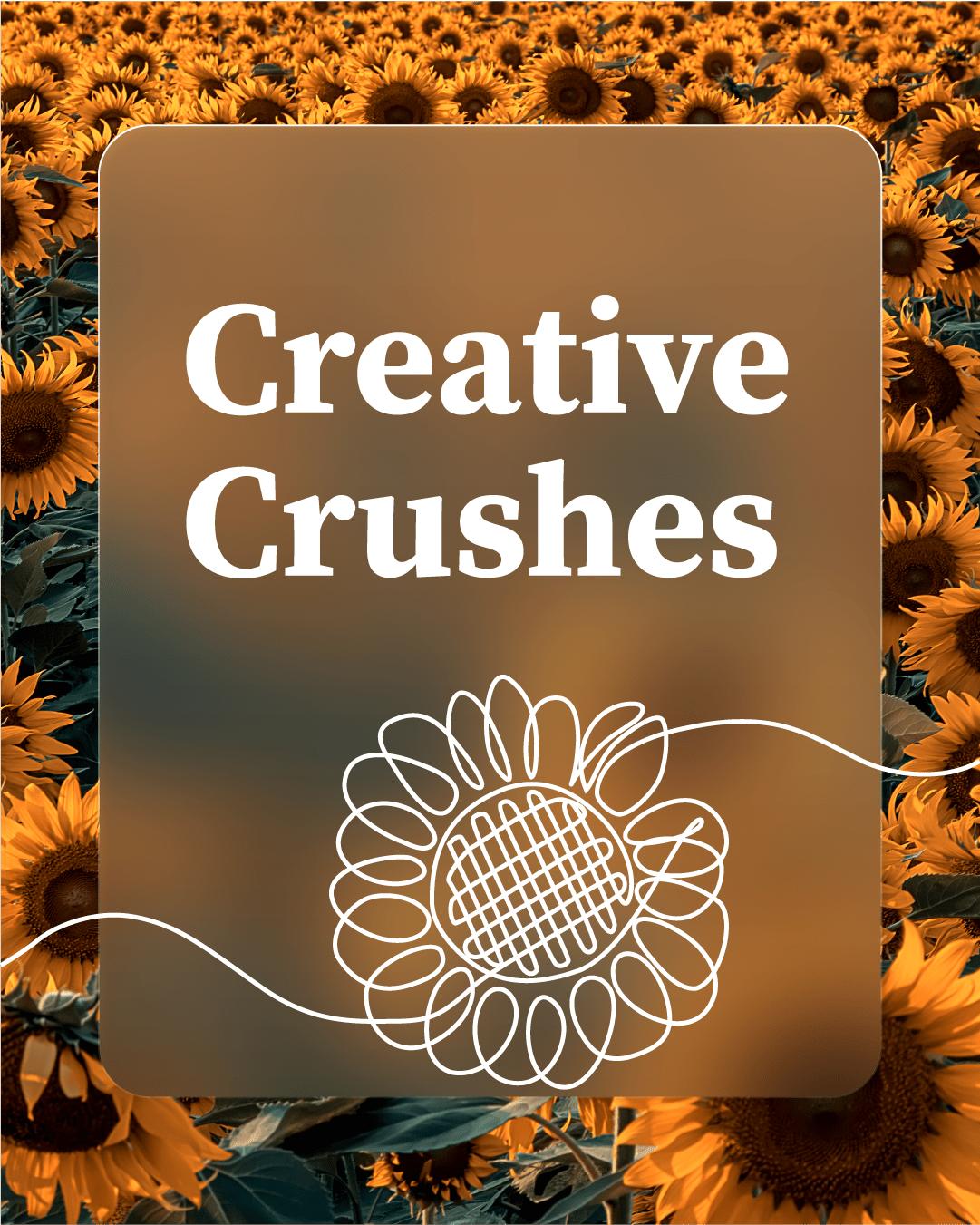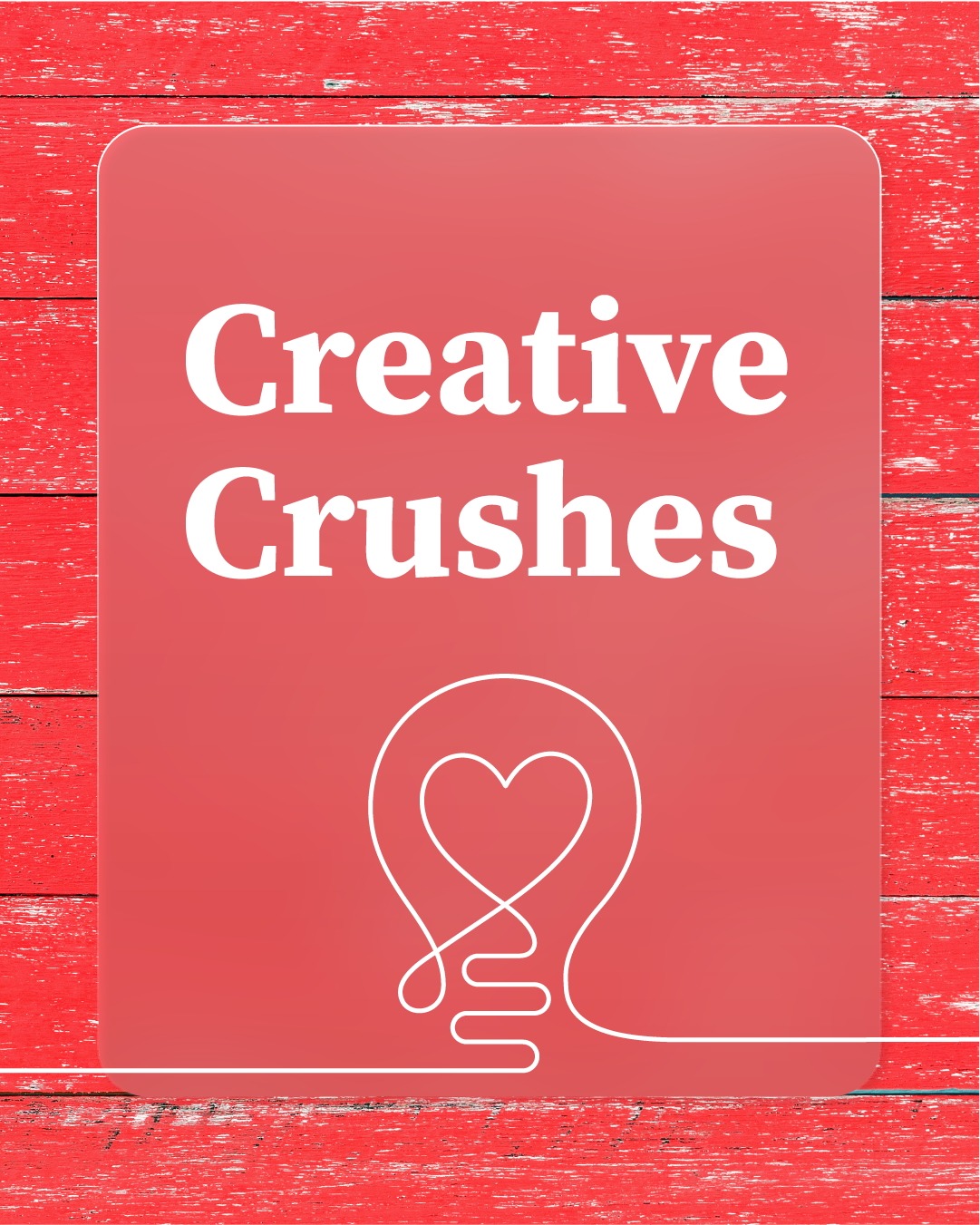Have you ever felt personally connected to a brand? Maybe you’re fiercely loyal to Nike for your sneakers, find yourself smiling at Liquid Death’s sassy social media posts, or appreciate Patagonia’s environmental activism. This emotional connection isn’t accidental—it’s the result of carefully crafted brand personalities that make companies feel more human and relatable. Understanding and defining your brand archetype is crucial in shaping your identity and guiding your marketing efforts.
In today’s overcrowded marketplace, having a great product isn’t enough. The brands that truly stand out have developed distinctive personalities that resonate with their audiences on a deeper level. In this post, we’re exploring what makes a brand personality tick and showcasing some stellar examples that have us completely smitten.
What is it?
Brand personality refers to the set of human characteristics and traits attributed to a brand. Just as we describe people as sophisticated, adventurous, or reliable, brands can embody these same qualities through their communication, visual identity, and actions.
A well-defined brand personality forms the foundation of effective branding design, influencing everything from color palettes and typography to the tone of voice used in marketing materials. It’s what makes your brand more than just a pretty logo—it becomes a visual representation of who your brand is at its core.
Think of brand personality as the bridge between the functional benefits of your products or services and customers’ emotional connection with your brand. It’s what transforms a transaction into a relationship.
Why it matters
In a world where consumers have endless options, brand personality is often the deciding factor that tips the scales in your favor. Here’s why it matters:
Emotional Connection
When brand marketing taps into human emotions through personality, it creates bonds that transcend product features. People don’t just buy what you do—they buy why you do it and who you are.
Differentiation
A distinctive personality helps your brand stand out among competitors with similar products or services in marketing. It’s much harder to copy a personality than a product feature.
Consistency
A well-defined personality guides all brand expressions, ensuring your brand in marketing remains consistent across touchpoints—from website copy to customer service interactions.
Customer Loyalty
Brands with strong personalities inspire loyalty beyond reason. Customers who identify with your brand’s values and character become advocates, not just buyers.
Research shows that 64% of consumers cite shared values as the primary reason they have a relationship with a brand. That’s the power of personality at work.
10 examples we’re crushing on
Let’s dive into some brands that have mastered the art of personality, from consumer-facing powerhouses to B2B champions.
Consumer Brand Personalities
1. Liquid Death (Irreverent & Bold)
This canned water company, a favorite with some of our team members, has turned hydration into an attitude with its death metal aesthetic and tagline “Murder Your Thirst.” Their rebellious personality has transformed a commodity product into a cultural phenomenon. Their logo design featuring a skull motif perfectly aligns with their edgy brand voice, proving that even water can have an unforgettable personality.
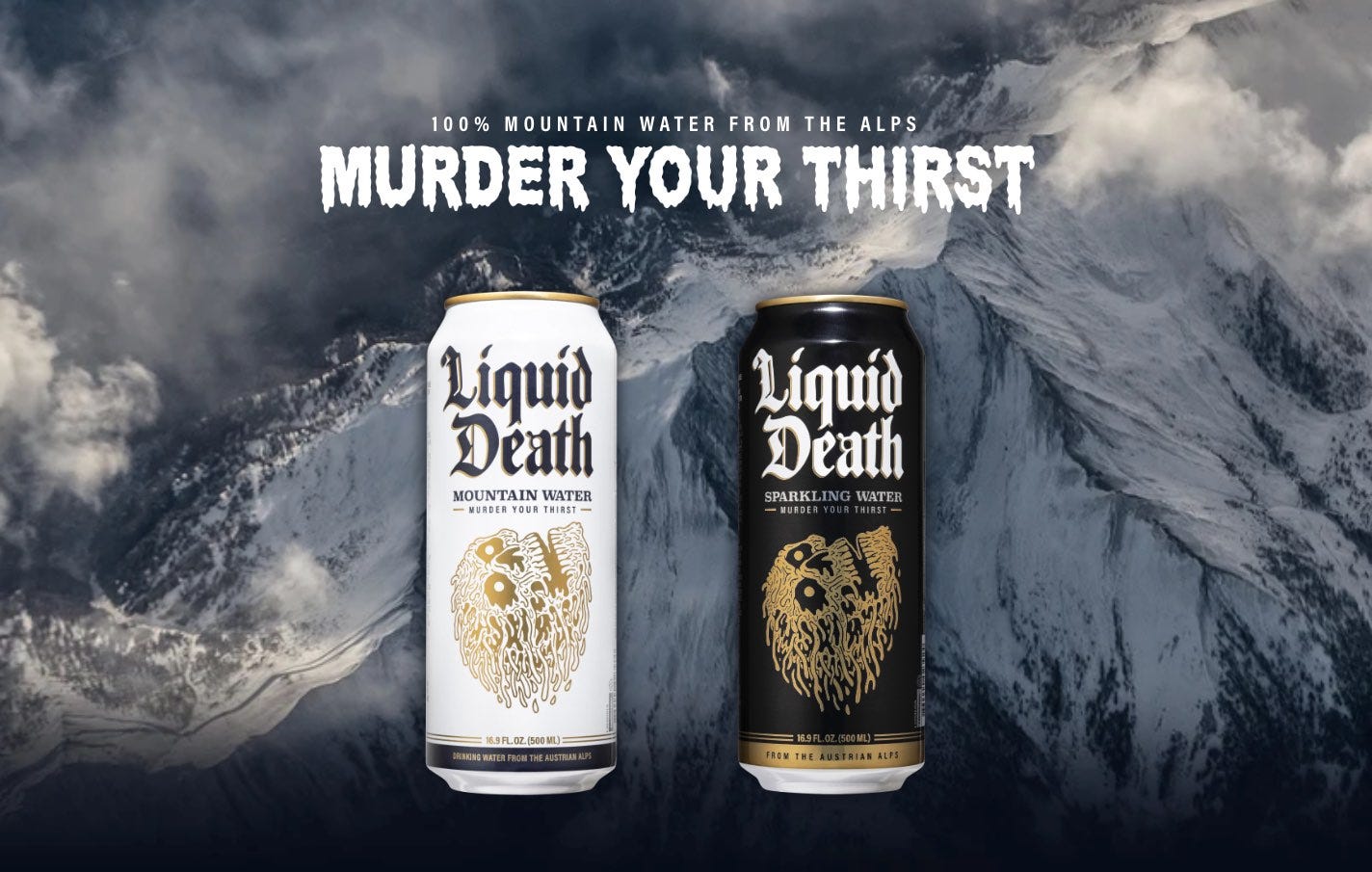
2. Patagonia (Activist & Authentic)
Patagonia’s environmentally conscious personality shines through everything they do—from their sustainable manufacturing processes to their “Don’t Buy This Jacket” campaign. Their brand marketing centers on environmental activism rather than pushing products, creating a crew of loyal customers who share their values.
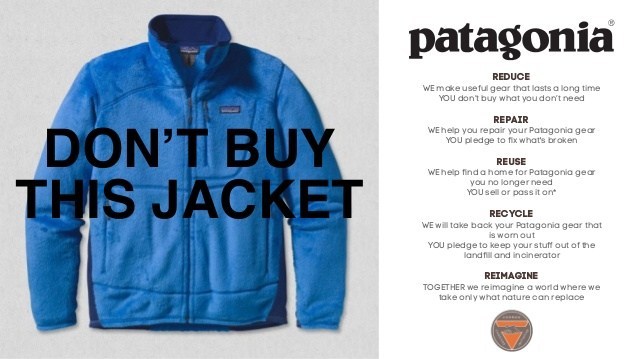
3. YETI (Rugged & Premium)
YETI has crafted a personality that celebrates outdoor adventure while maintaining a premium quality position. Their branding design combines durability with aspirational outdoor lifestyle imagery. They’ve elevated coolers and drinkware from utilitarian items to status symbols for outdoor enthusiasts.
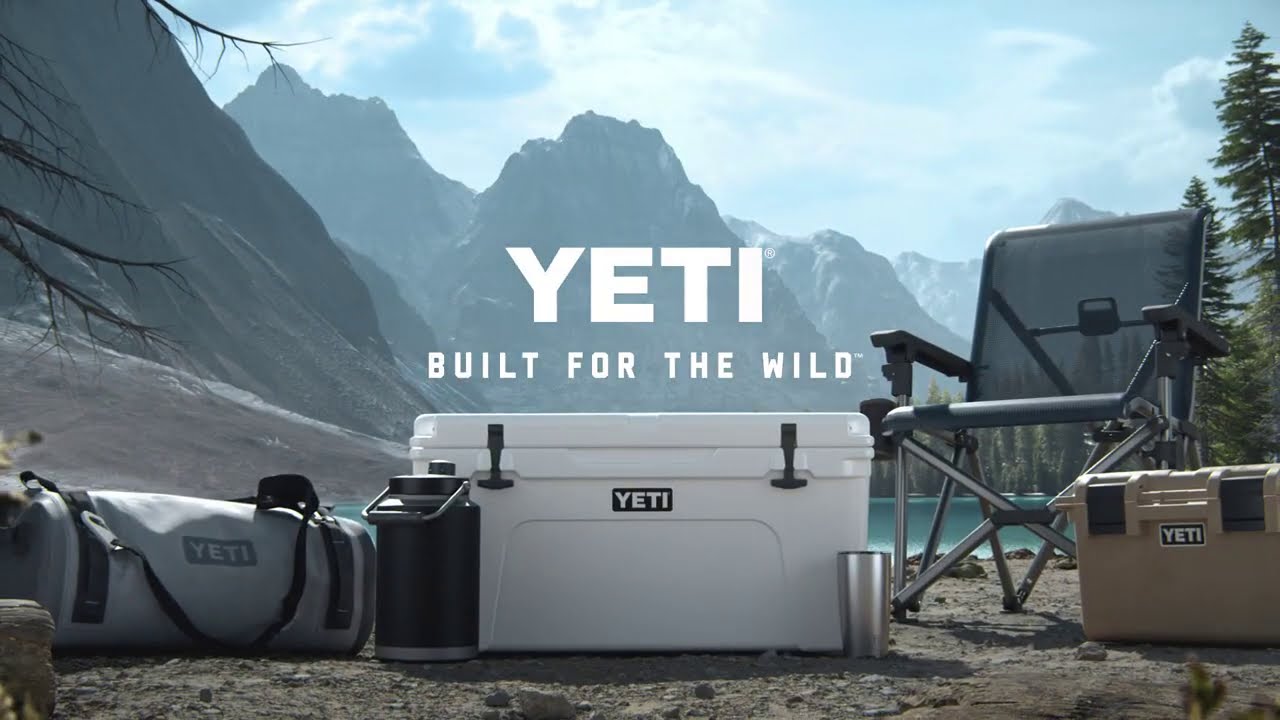
4. Nike (Inspirational & Empowering)
With their “Just Do It” mantra, Nike has built a personality around determination and athletic achievement. Their brand in marketing consistently empowers consumers to push boundaries and overcome obstacles. The “So Win” ad campaign during the 2025 Super Bowl was one of our favorites. Their graphic design logos featuring the simple yet dynamic swoosh have become one of the most recognizable symbols of athletic empowerment worldwide.
5. Glossier (Inclusive & Friendly)
Glossier has developed a personality that feels like your beauty-savvy best friend—approachable, inclusive, and in-the-know. Their branding design elements feature soft pinks, simple typography, and natural-looking models that reject traditional beauty standards, creating a brand personality that celebrates authenticity.
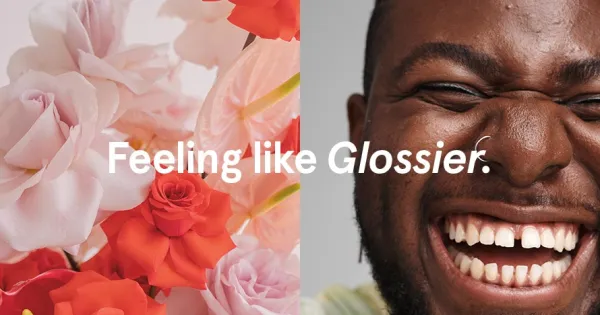
Business Brand Personalities
6. Slack (Playful & Helpful)
Slack has injected personality into business communication with their colorful, friendly interface and helpful, conversational tone. Their logo design incorporates playful colors while maintaining professional credibility, proving B2B brands can have personality without sacrificing authority. Their marketing also has a playful vibe, as present in their “The Big Meeting” campaign.
7. Mailchimp (Quirky & Supportive)
Mailchimp’s distinctive personality balances whimsy (hello, Freddie the chimp mascot 🐵) with serious business support. Their brand personality shines through their hand-drawn illustrations, conversational copy, and their ability to make email marketing feel approachable rather than technical.
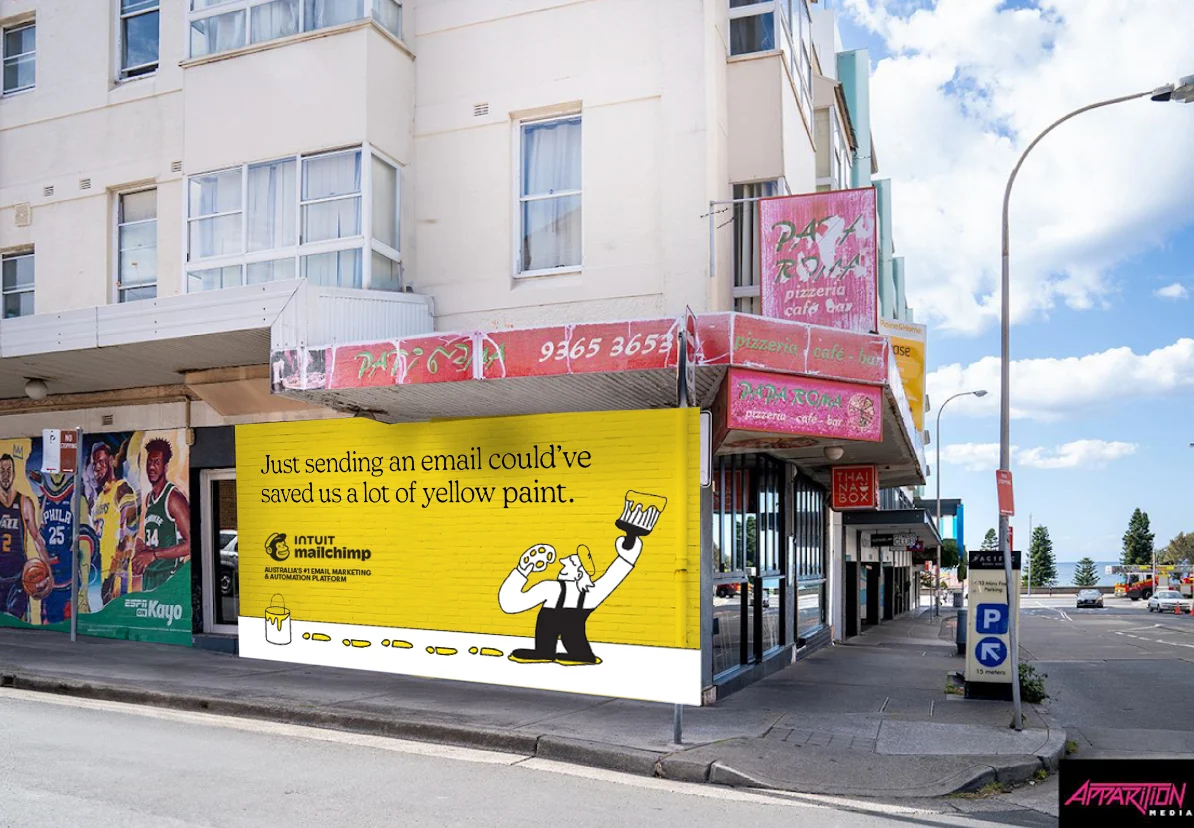
8. Salesforce (Innovative & Trustworthy)
Salesforce has built a personality around innovation and trust in the CRM space. Their elevated brand marketing approach positions them as forward-thinking thought leaders while maintaining reliability. Their cloud-based logo design visually communicates their technology savviness. Salesforce Dreamforce reinforces their desire to build community and trust with their customers.

9. HubSpot (Educational & Friendly)
HubSpot’s personality centers on being helpful marketing educators. Their approachable, orange-themed branding design and commitment to providing free value through educational content have created a personality that positions them as trusted advisors rather than just software vendors.

10. Stripe (Streamlined & Sophisticated)
Stripe’s minimalist aesthetic and straightforward communication reflect a personality that values simplicity and elegance. Their brand logo design and interface embody their commitment to removing complexity from online payments, creating a personality that feels efficient yet sophisticated.

How to define yours
Inspired by these examples? Here’s how to develop your own brand personality:
- Identify your core values: What principles guide your business decisions?
- Understand your audience: What personality traits do you have in common and would resonate with your ideal customers?
- Analyze your differentiators: What makes you unique in your market?
- Create a brand personality framework: Define 3-5 key personality traits that will guide all brand expressions.
- Develop a visual identity: Just like a person, brands have very distinct visual looks. Logo, color palette, typography, illustration style, graphic elements, and photography make up a brand’s visual identity. These elements should reflect your brand personality and purpose.
- Find your brand voice: Your brand should have a distinct verbal style that’s clear, consistent, and authentic to what you do and how you do it.
- Apply consistently: Ensure your personality comes through in everything from your logo design ideas to your LinkedIn profile banner, blogs, and customer service scripts.
Remember that the most effective brand personalities are authentic extensions of your company’s true character—not fabricated personas that feel disconnected from your actual business practices.
A compelling brand personality makes your marketing materials interesting and creates meaningful connections with your audience. The brands we’ve highlighted understand that personality isn’t just nice to have; it’s essential for standing out in today’s competitive landscape.
What brand personalities are you crushing on?

